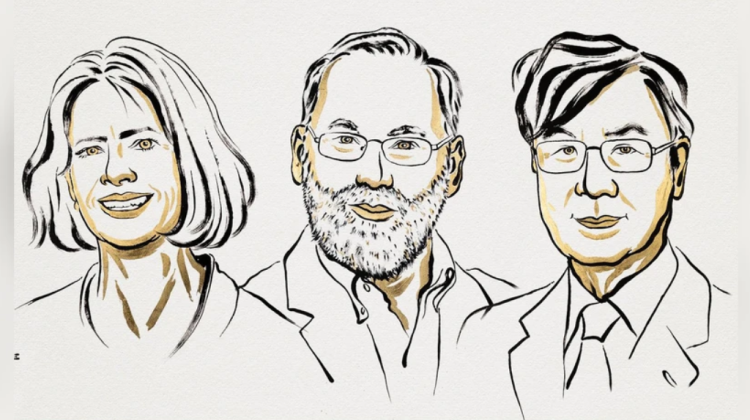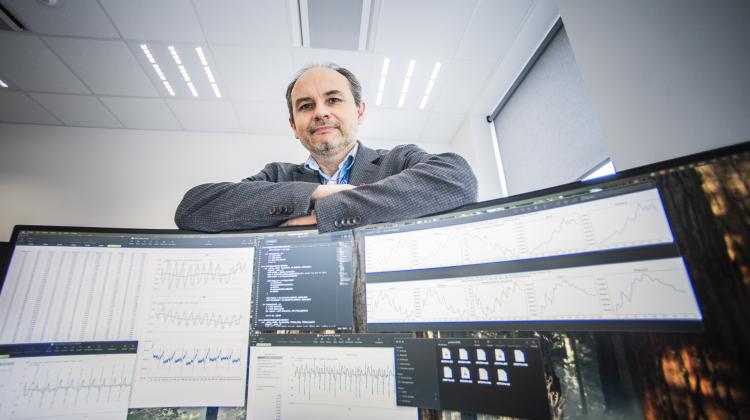To eat meat or not to eat? That is the question! It is asked more and more often by consumers in the United States and Europe, who, when faced with doubts, give up meat consumption.
The growing popularity of vegetarianism is pleasing to ecologists, as breeding cows, pigs and poultry is responsible for around 18% of greenhouse gas emissions, consumes large amounts of water, pollutes the air and generates high energy consumption. 1 kg of beef produces 60 kg of CO₂ emissions, 1 kg of chicken emits 6 kg of CO₂.
The creators of innovative designed food, who develop food that is not meat in the laboratory, are also happy about the changes. These products have the same appearance, smell, texture and taste as their real meat counterparts. The basic component of such meat analogues are textured vegetable proteins obtained in the extrusion process. It is a process that allows a product to be obtained, not only making it similar to the taste of meat, but also having characteristics such as chewiness and a mouth-feel of the right texture. The use of appropriate processing conditions and additives makes it possible to obtain a product with a characteristic, fibrous structure of meat from proteins isolated from soy or wheat. It turns out that meat substitutes are also a rich source of nutrients.
Meat substitutes
For 5 years now, Burger Kings has been offering a vegetarian burger, which has the taste and appearance of the original beef, and its originators believe that it is impossible to distinguish between them. Just like beef - this cutlet also "bleeds", but with beetroot juice, rich in antioxidants and health-promoting ingredients. From April 2021 we can try Veggie burger at McDonald's. This vegetarian cutlet consists of whole pieces of vegetables, incl. broccoli, peas and carrots, covered with crispy coating. In 2022, KFC expanded its menu to include Beyond Fried Chicken - recently, you can buy the brand's extended offer in over 4,000 restaurants in the USA. Interest in this type of food is quite large, but interestingly - not necessarily among vegetarians, because not all of them are looking for "original substitutes".
Over the past decade, plant-based diets have grown in importance in some parts of the world, as has the demand for "meat substitutes". In most countries, consumers are attached to a culinary tradition in which meat plays an important role. Despite this, many of them are ready to consider participating in a diet consisting of vegetable chops. A new trend in the production of meatless protein is "Mycoprotein" - subjecting mushrooms to fermentation, allowing for obtaining a protein substance with a fibrous consistency, resembling meat. Research confirms that vegetarianism is becoming a well-thought-out lifestyle choice. It is not associated - as he used to - with people fighting for animal rights. It is a choice in which giving up meat consumption results in a more careful and balanced diet. And this way of eating means that the dishes are prepared on the basis of a variety of plant products - tasty and wholesome.
Two solutions for a vegan diet
Although every year there are more and more results of clinical trials that encourage vegetarianism and show that meat consumption may affect the occurrence of many civilization diseases, doctors and nutritionists still do not agree on the vegan diet. There are currently emerging technology companies around the world that are developing products that "mimic" those of animal origin. They use one of two solutions: recipes based on plant products (an example of which may be the aforementioned vegetarian burger) or meat produced in a laboratory.
In the first case, among others, high-protein vegetables such as peas and soybeans, genetically modified yeast, beetroot juice to recreate the taste, texture and appearance of the meat. The second case was considered science fiction until recently, but is now slowly being implemented. Products based on meat created in the laboratory are expected to be on the market soon. Production is based on collecting cells from animals (e.g. cows, poultry) and growing specific products in a laboratory.
The two approaches differ in strategy but have the same goal - to create a product indistinguishable from the original, largely intended for consumers who do not want to give up the taste of meat, but are considering a desire to change their diet in the future. These solutions still require research into the effects on human health, but it seems that plant-based protein products, as long as they are not highly processed and do not contain harmful compounds, including high amounts of sodium or saturated fat, may have potential benefits in improving the health of people worldwide.
It is worth emphasizing that food based on plant products is not always healthier. In India, where a vegetarian diet is a staple, the proportion of people suffering from heart disease, stroke, obesity and diabetes is on the rise, as the consumption of low-processed and whole-grain products has decreased, while the consumption of highly processed carbohydrate products has increased. In turn, meat grown in the laboratory is so far very expensive, but supposedly tasty. As this phenomenon is new, its impact on humans is currently unknown.
Where is the alternative meat industry heading?
Summarizing the reports on the meat alternative industry, we conclude that it will certainly continue to grow. This is because there is a growing concern about the environmental impact of our eating habits and about the quality of our nutrition, especially as the availability and variety of meat alternatives is increasing day by day. It should be remembered, however, that the plant-based diet is not about perfectionism, but about a balanced diet.




